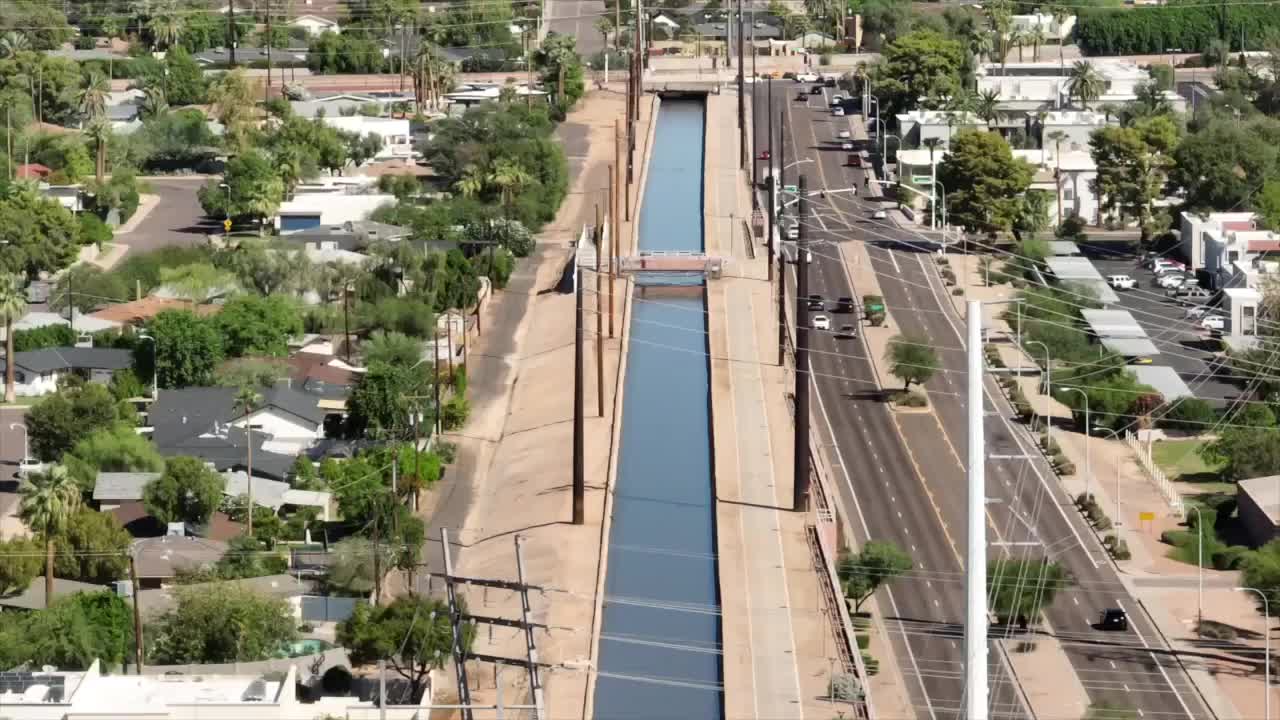PHOENIX — A new water year began on October 1, and with it, the pressure is rising on seven western states to finalize a deal that will determine how the Colorado River is shared.
The agreement that has governed the river for nearly two decades expires this year, and negotiators face a February 14 deadline to present a draft plan to the public. States are struggling to balance more demand with less supply, and the negotiations are now also facing a drought of leadership in Washington.
Arizona depends on the Colorado River for more than 900 billion gallons annually, enough to supply homes across the Valley and power Yuma’s farming industry, which grows 90% of the nation’s winter leafy greens.
Under the current Tier One drought declaration, Arizona is already taking reductions, with more expected next year.
“Arizonans, they are the ones cutting the most,” said Kyle Roerink of the Great Basin Water Network. “I think they would be insulted if they knew the water they were cutting to stabilize the system was staying in Denver to grow green lawns.”
Water experts say the biggest sticking points are between the Upper Basin states like Colorado, Utah, Wyoming, and New Mexico, and the Lower Basin states of Arizona, Nevada, and California.
Upper Basin leaders have argued they shouldn’t be forced to guarantee more water downstream.
“The spokesperson for the Upper Basin in Colorado has stated they refuse to sign anything that requires them to send more water downstream,” said Gary Wockner of Save the Colorado.
Meanwhile, conservation groups say transparency is lacking. Federal law mandates that the public have the right to review the agreed-upon deal before it is finalized. A collection of water watchdogs released a report at the start of the new water year, urging action and results.
“We don’t have the transparency one in eight Americans deserve when it comes to what the future of their water looks like,” said Zach Frankel of the Utah Rivers Council.
Complicating matters further is the collapse of a high-profile nomination. Ted Cooke, former general manager of the Central Arizona Project, was nominated by President Trump in June to lead the Bureau of Reclamation, the federal agency that oversees Colorado River negotiations.
Now his nomination has been pulled. Cooke told ABC15 the explanation he was given was issues with his background check paperwork; he believes this is just a cover story.
“What was really going on was that all of this chatter from the Upper Basin about concerns I would be biased had reached the ears of some politicians,” Cooke said. “They weren’t going to get behind the nomination. And that was that.”
Cooke says those concerns ignore his full record and that he wasn’t even allowed to address them in a Senate confirmation hearing.
“People need to look at my record rather than where I’ve been working,” he said. “I had a whole other career in renewable energy before I ever came to CAP, in Oregon and California. To say I couldn’t be fair is just projection.”
He argues the politicization of his nomination marks a troubling shift.

Do you have a concern in your community or a news tip? We want to hear from you!
Connect with us: share@abc15.com
“It’s been kind of an unwritten rule that we don’t politicize water,” Cooke said. “Water is needed by everybody. We don’t run to Congress or the courts when we have a problem; we sort it out together. But now, it’s polarized all the way up to the U.S. Senate.”
With Cooke out, the Bureau of Reclamation is led by acting commissioner David Palumbo. Cooke says that the acting leaders have done the best they can, but ultimately, their temporary title limits the agency’s influence on negotiations.
“They’re acting, so they can put as much pressure as they want on the seven states,” Cooke said. “But there are really no consequences for the states to ignore these people and not meet the deadlines.”
Cooke says the government has given a few deadlines for when they want to see a plan, ideally by February of 2026. He also adds that the situation is at an impasse, and deadlines may slip without stronger leadership.
“The only difference between today and all those other times over the last three years when deadlines passed is that now there’s no more time,” Cooke said.
If states can’t agree, Cooke warns the federal government will have to impose a plan, a move almost certain to spark lawsuits.
“The worst option is letting a judge decide,” Cooke said. “But if the states can’t come together, that’s exactly where we’re likely to end up.”
The Colorado River Water Users Association's annual conference takes place in Las Vegas this December.






